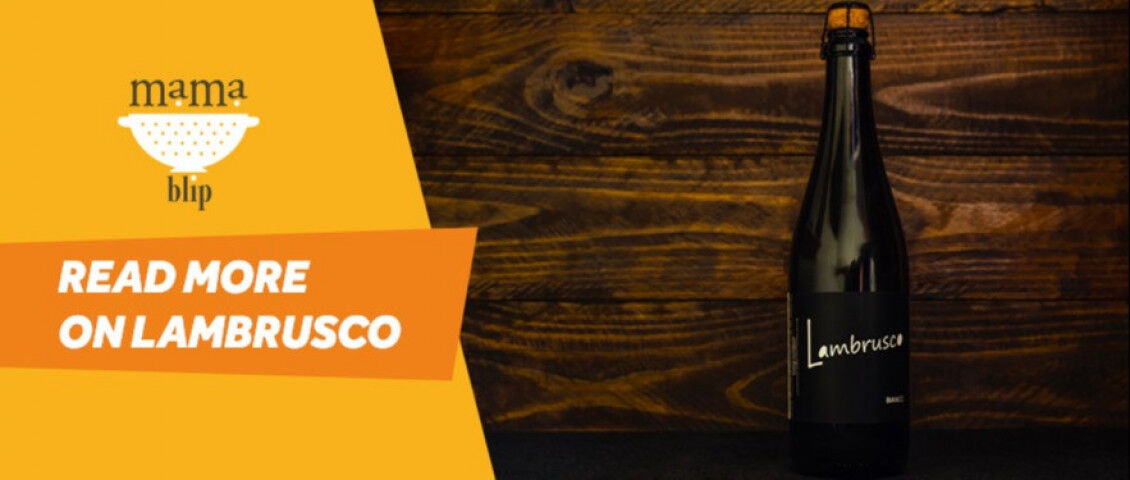Who is Ruenza Santandrea?
Ruenza Santandrea is the current president of the Consorzio Vini di Romagna, a position she has accepted almost in a spirit of service to a world she loves and knows well, that of wine.
Ruenza Santandrea is the current president of the Consorzio Vini di Romagna, a position she has accepted almost in a spirit of service to a world she loves and knows well, that of wine.
By Francesca Ciancio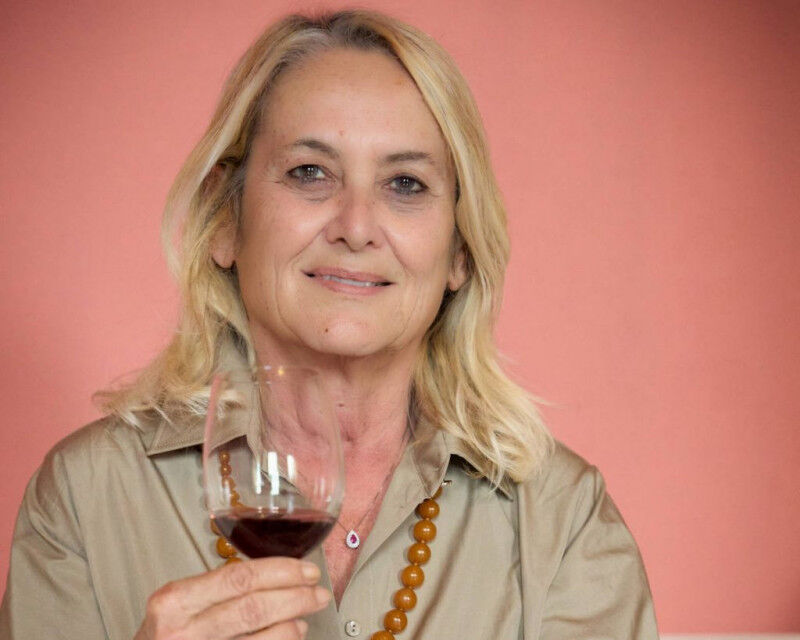
Ruenza Santandrea is the current president of the Consorzio Vini di Romagna, a position she has accepted almost in a spirit of service to a world she loves and knows well, that of wine.
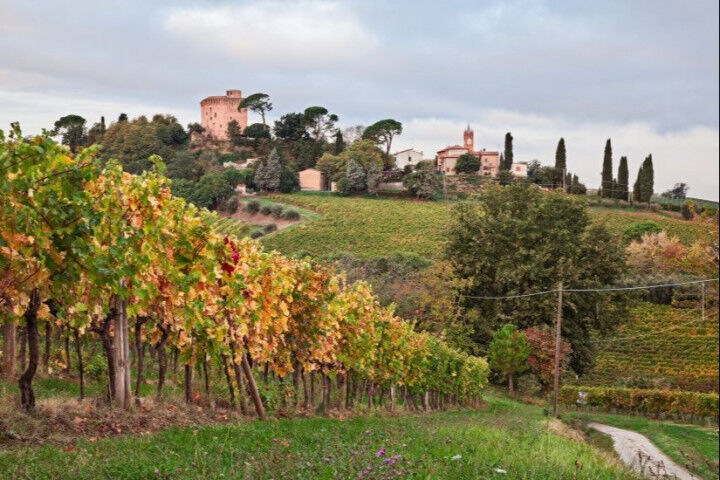
Emilia Romagna is made up of the union of two historical regions: Emilia, which includes the provinces of Piacenza, Parma, Reggio, Modena, Ferrara and a good part of the province of Bologna, with the region’s capital; and Romagna, with the remaining provinces of Ravenna, Rimini, Forlì-Cesena and the eastern part of the province of Bologna. The areas that make up the current region have been populated since very remote times, and there are many sites of historical and cultural interest that can be visited within its boundaries: the most famous case is the site of Monte Poggiolo, near Forlì, where thousands of artefacts dating back some 800,000 years have been found. The many natural resources and excellent cuisine, combined with a skilful ability to exploit its resources for tourism, make it a fascinating destination for everyone in any season of the year.
Since 1962 the Consorzio Vini di Romagna has been an association of 115 wineries, including 7 cooperative wineries, 5 bottlers and 103 wine producers.
It has always worked to support and promote the quality of the wines, the balance of prices and the enhancement of the product and its territory. Today the Consortium is a leading player in the growth of Romagna's wine production, which has reached levels of qualitative excellence, especially in recent years, with awards and mentions in national and international wine selections.
The area boasts 1 DOCG, 5 DOC, 4 IGT protected denominations: Romagna Albana DOCG, Romagna DOC - with Sangiovese, Pagadebit, Cagnina, Bianco and Rosato Spumante types -, Colli d'Imola DOC, Colli di Faenza DOC, Colli Romagna Centrale DOC, Colli di Rimini DOC, Rubicone IGT, Forlì IGT, Ravenna IGT, Sillaro IGT.
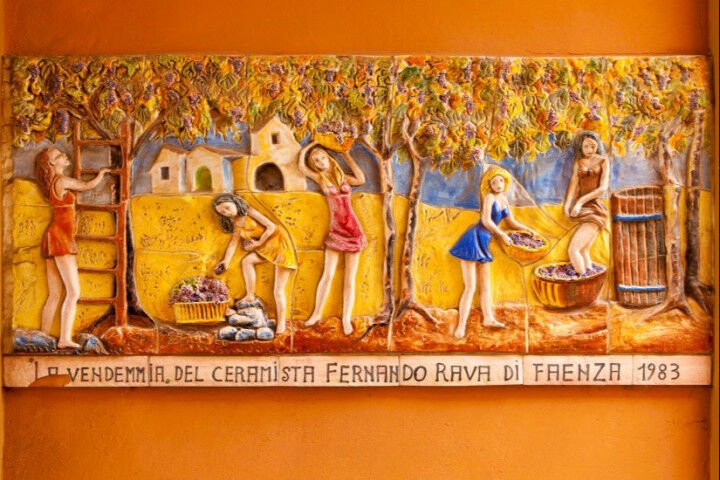
An idea of Romagna that is fun, spontaneous and ingenious, where the sea is as present today as it was a million years ago, but where the hinterland is just as important, with its special features of excellence: art - such as the mosaics of Ravenna, but also the new generation of local contemporary art – like the engines and speed of the Imola racetrack – the cinema of Fellini and Tonino Guerra and their dreamlike poetry; fishing - with its seafaring villages; and where food follows all these stories as an essential part of being Romagna. Above all, zero boredom! A wine region which is serious but not austere, concrete but also light-hearted; like its wine, so good that many people can appreciate it.
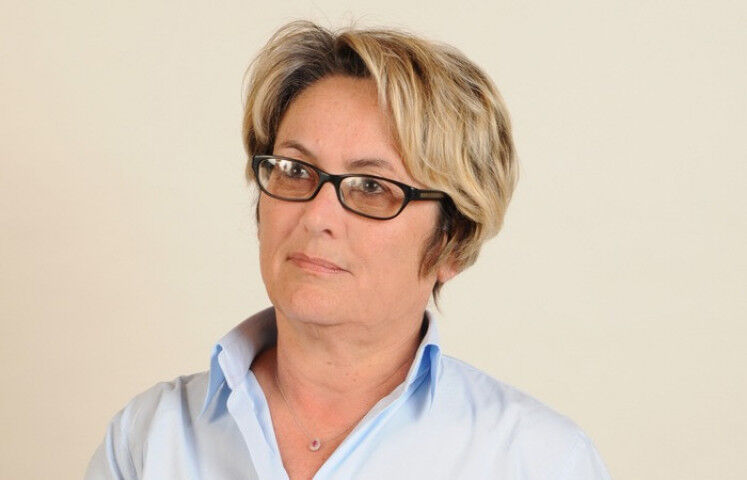
Ruenza Santandrea is a woman with a strong hand without being controlling. On the contrary, her entire professional biography speaks of sharing and listening, of the need to extend discussion. That's why she brings to the Consortium her firmness and experience, but also the desire to understand the needs of a vast and varied sector - including producers, cooperative wineries and bottlers. Romagna wants to be a team, and a woman like Santandrea knows how to be a good captain.
The name Ruenza makes one think of something that causes confusion, of a force that shakes things up, and of course of impetuosity ( the translation of the word ‘irruenza’ in Italian). The closest thing to it is Ruente, a small Spanish municipality in Cantabria, whose name derives from the term jana used in the Middle Ages to refer to witches, who could be good or bad.
Then you get to know Ruenza Santandrea and you think, first of all, that she is the first and probably the last person you will meet with this name and that, all things considered, it suits her.
Let's say it straight away, and then we won't repeat it: Ruenza is a woman of wine, but first and foremost she is a person who has worked in the sector for a long time and continues to do so, even though retirement has arrived and her plans were to enjoy her family and Romagna. Romagna. Santandrea is through and through a child of this region. Coming from Faenza, she is sanguine and determined, inclined to practical talk but not brusque. And a gourmet, of course.
She is 67 years old, with two daughters and two grandchildren, and a husband who has been with her since she was a girl. A companion who has always supported and helped her, even when she was a slightly rebellious girl in the late 1960s. She says she used to go to events organised by her accountancy school in hot pants, while many women in the city still wore a headscarf. She considers herself lucky to have lived through important years for women's emancipation alongside the man who would become her husband at 20 and father of her first child at 21.
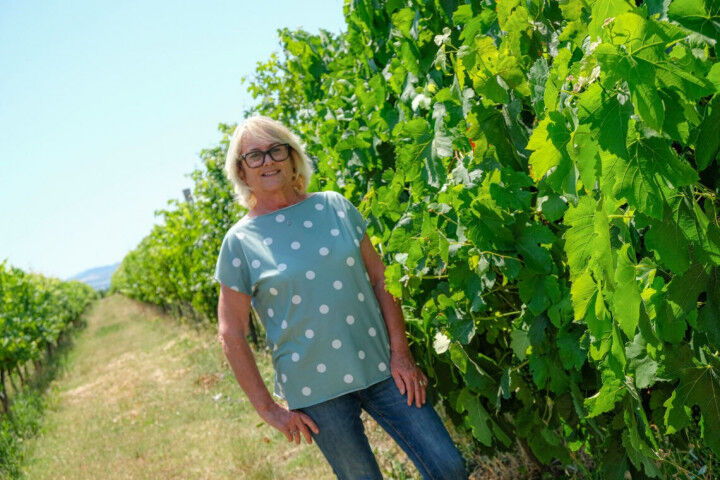
Yet she remembers spending her summers as a child sewing next to her 80-year-old aunt and arguing with her mother because she could not understand why she was the only one who had to do the housework and not her brothers.
Her first work experience came at the age of 15 as a worker in a fruit factory, for three months, every summer: 'They were good salaries,' she says, 'economic independence helps you to feel free, to think about what freedom is, and when I was 18 I got my driving licence and bought a 500. Today everything is different, work is often exploitative and badly paid, the opposite of freedom'.
Her first job behind a desk came at the age of 18 with an accountant, and it was here that Ruenza began to specialise in taxation and management consultancy, two skills that opened up the world of cooperative wineries such as the Cantina Sociale COPA in Faenza: 'a totally male-dominated world,' Santandrea recalls, 'which has never rejected or discriminated against me, but I think Romagna has a lot to do with this. It has always been a place where little attention is paid to gender differences.Rather, we had to show that we knew what we were doing'.
And Ruenza was so committed that she had to recognise that reconciling family and work was impossible, and decided to open her own professional studio - management consultancy and auditing - collaborating in the establishment of important consortia in the productive world of Romagna: "I've always liked working with companies, helping out on the boards, in short making people feel good together. I've also worked with truckers' cooperatives with 700 members, and I've always been respected. It's the organisation of work in general that's designed by men and for men: hours and space modulated according to men's needs.
In 2005, the chairmanship of the Cevico Group and its subsidiaries arrived, and so she gradually left the consultancy business: "but I kept the firm open because I had three young women working with me, I couldn't send them away. When you get an offer like this at the age of 50, first of all you are surprised, because up to that moment the future seemed already set, and instead you realise that your working life can start again. This fills you with enthusiasm, and it lasted a long time, 12 years for four terms. I left in 2017, and the greatest satisfaction was that I left not only a healthy company, but one that continues to do well and grow".
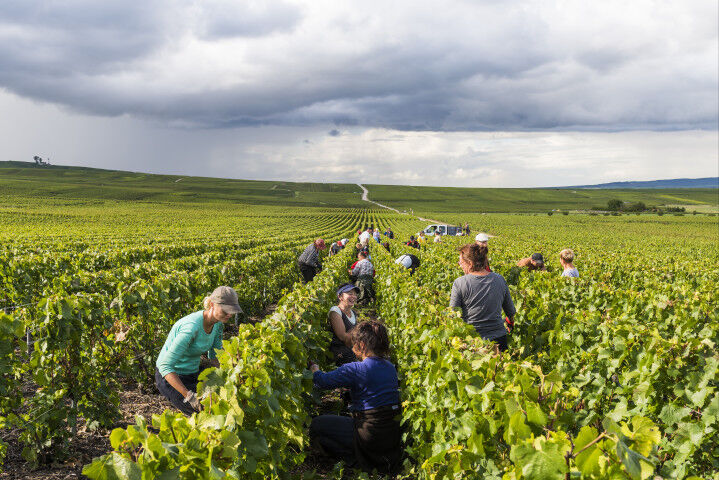
To make it clear, Cevico has 5000 members, bottles 100 million units a year, employs 264 people and boasts a turnover of 164 million. In the 1960s and 70s, it began trading exclusively in bulk wine. In the 1980s and 1990s, it switched to the sale of large formats and bottles. In the 2000s, following market indications, it started production and packaging in bricks and bottles for the Ho.Re.Ca. channel ( Catering for Hotels, Restaurants and Cafés).
Today, the Group - founded in 1963 - operates mainly in Emilia Romagna but also has cellars in Veneto, Tuscany and Umbria, and is present in 67 countries around the world, particularly in France, China, Japan, the UK, the USA and South East Asia. There are almost 300 references.
I asked her whether her presence for so many years in Cevico has helped the role of women in the cooperative and Ruenza is forced, despite herself, to say no: 'mostly women stay in administration. Yes, there have been female figures on the board of directors, but not enough. Having said that, I don't believe in the logic of pink quotas'. Santandrea became a real manager and held other important roles, such as national manager of the wine sector of the Alliance of Cooperatives, which enabled her to launch ViVite, the cooperative wine festival, and promote European cooperative wine coordination with the French and Spanish. She was also the only woman among Italy’s five ‘sages’ chosen by the Ministry of Agriculture to organise the wine pavilion during Expo 2015.
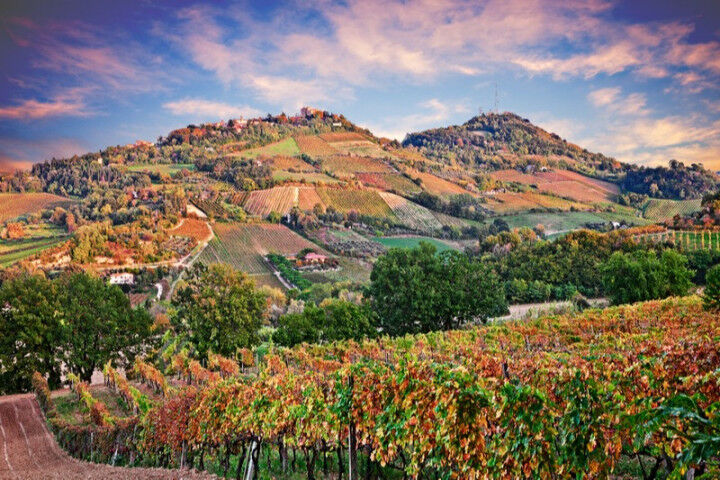
In short, the end of the second decade of 2000 was supposed to coincide with Ruenza's retirement from all work, but then the pandemic arrived and the Consorzio Vini di Romagna thought she was the right person to study the moves for a different kind of communication about Romagna, which went beyond the usual ‘piadina’ and bathing establishments:
We had to tell the story of a land that has its own distinctions," emphasises the President of the Consortium, "in terms of soil, climate and traditions. The character of Romagna says a lot about its wine and vice versa. We had to find the most suitable tools to convey this, and to do so we asked several university lecturers for help". The Consortium is made up of small and large cooperatives - including Caviro - and Santrandrea has to be asked if this is the right way to go:
“Do you know that all cooperatives in Europe account for 50% of wine in the Old Continent and 25% of wine in the world? Can we disregard these figures? The two worlds - that of private wineries and that of cooperatives - support each other and without the cooperatives Italy's wine industry would be much less influential. Not to mention the fact that cooperatives are a barrier against the abandonment of agriculture in many places. I understand that there is still a lot of prejudice against them, and the responsibility also lies with the cooperatives themselves who do not invest in communication, but this is an entirely Italian distinction. Outside Italy there are large international companies whose production is a far cry from our co-operatives and yet they do not receive so much criticism.”
Now the "lady of Romagna wines" is concentrating on her work as president of the consortium and one of her first steps was precisely that of ensuring "social peace" between small businesses and cooperatives. She swears that it will not be a long assignment: "I always enjoy my work," says Ruenza, "but the time has come to stop.”
